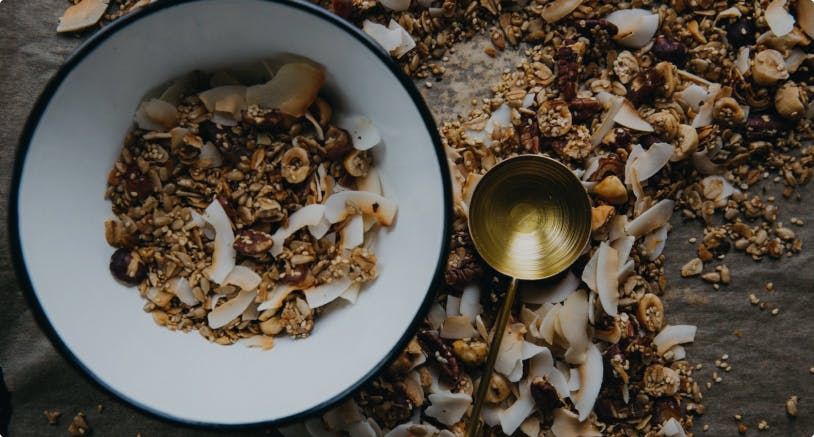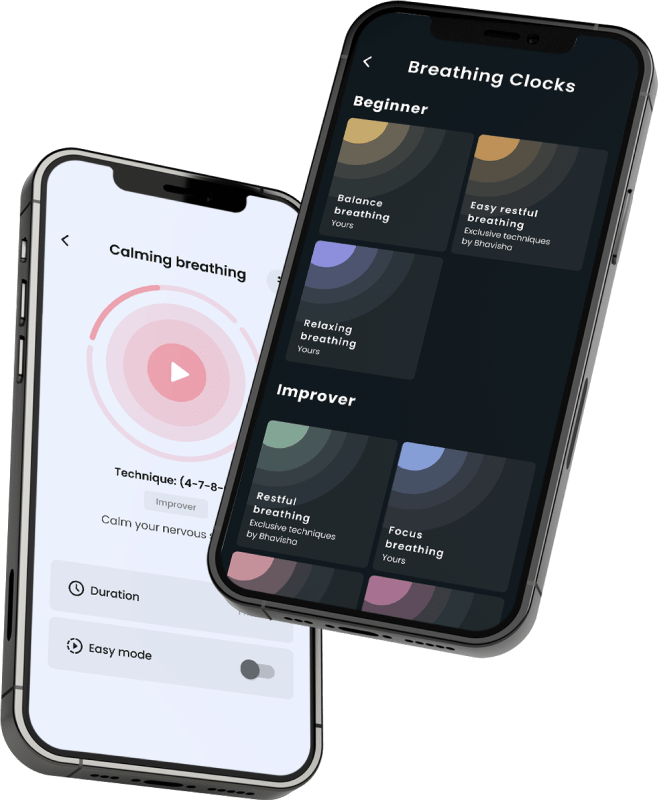When and what to eat before yoga

It’s a fact that physical exertion of any kind requires our bodies to have the necessary fuel to be able to twist, bend and contort into shapes, so what we eat and when will be crucial to how your yoga workout goes and what you get out of it.
What should I eat before yoga?
Ideally, you should eat a light snack one hour before doing a yoga class and, by making it as nutritious as possible, you’ll ensure you’ll get the best out of your session. When it comes to nutrition there are two types of nutrients. Macronutrients are the so-called ‘big’ nutrients that make up the bulk of your meals in carbohydrates, protein and fat; while micronutrients are the smaller individual vitamins and minerals. Both work together to keep you healthy but it’s the latter that will be your friend when it comes to pre-yoga snacks.
Healthy plant-based nibbles packed full of vitamins, minerals and protein will be the ideal food before your yoga class. These foods should be easy to digest and not sit on your stomach. After all, you want to help keep your body loose and fluid through your on-the-mat movements.
Foods to eat before yoga:
Try these healthy options an hour before class and see how your body feels:
- Greek yoghurt is high protein and much lower in sugar than other flavoured yoghurts. Try a small bowl topped with nuts or nut butter and a sprinkling of fruit such as berries or sliced apple.
- A handful of almonds will power you through a yoga session. They provide potassium, vitamin E, magnesium and just the right amount of carbohydrates. Plus they’re easily transportable for on-the-go goodness. Just make sure they’re organic and raw, and definitely not salted.
- Bananas are rich in potassium which helps muscle function and prevents cramps, high in fibre and low in sodium making them the perfect pre-yoga snack. Chopped bananas with peanut butter and a dash of milk will add all-important protein.
- Blending up a smoothie, particularly before a breakfast yoga class, is a delicious, easy to digest solution, plus you get to choose what goes in. Just make sure it’s lighter on ingredients, choosing just three foods. Sticking to this formula of one from each group will help your body get a steady release of blood sugar with no dangerous spikes: high fibre greens (celery, spinach, cucumber), carbohydrates (fruit or oats) and fats (nut butter, avocado, chia seeds).
- Whole grains such as oatmeal or quinoa (technically a seed but considered a grain) are great for providing fibre, slow-release carbohydrates and minerals without the starchiness of potatoes. Mix with fruits for a power snack that will make you feel full but not bloated.
What should I avoid eating before yoga?
The last thing you want during yoga practice is to feel lethargic and uncomfortable as you contort your body into poses so avoid anything rich, spicy or salty as well as big heavy meals right before class. Deep fried and processed foods can cause indigestion, heartburn and stomach ache which you’ll regret. Remember the rule that the closer to your workout, the lighter the snack should be otherwise you could feel sluggish and won’t be getting the most out of your class.
What should I be drinking before yoga?
We all know it’s important to stay hydrated throughout the day to keep brain and body functioning at maximum levels but exactly how much you should be taking in will depend on what time of day you do your class. For early morning yogis, you’ve had a night time of probably zero water intake so drinking one to two large glasses (about 400 ml) will kick start your metabolism. If you find it hard to drink that much water first thing, add some lemon juice and ginger, try coconut water or sip a herbal tea or fruit infusion. If your class is later in the day and you’ve kept hydrated try to drink one glass 30 minutes before hitting the mat.
What should I avoid drinking before yoga?
While hydrating is a must, there is such a thing as too much. Downing too much water pre-yoga will give the same feeling as overeating and we don’t want a full uncomfortable stomach. Overhydration can also lead to energy loss, muscle weakness and cramps. While coffee boasts some great antioxidants which ward off disease, drinking a lot before yoga can dehydrate the body and cause jitters. The same goes for alcohol pre-workout which can also lower blood pressure and send your balance off which definitely won’t help your warrior poses.
Can I do yoga on an empty stomach?
Many experts believe exercising on an empty stomach is a good thing as food in the digestive system can cause bloating, gas and generally interfere with the rhythm of the body. If you’re used to exercising on an empty stomach – empty is classed as going two to three without food – then that’s fine but considering some yoga classes can be up to 90 minutes long, beginners are best to eat something light an hour or two before class. If you’re practicing yoga in the morning and haven’t eaten since the night before you may feel hungry, or even a bit dizzy and faint during the class. Nibbling on high-protein snacks an hour before which are packed full of micronutrients will keep energy levels up and blood sugar levels on an even keel.

